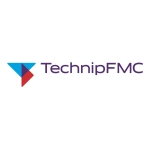Cognito Therapeutics Publishes Study Demonstrating Structural Brain Preservation in Alzheimer’s Disease in Frontiers in Neurology
Media Contact:
Kimberly Ha
KKH Advisors
917-291-5744
kimberly.ha@kkhadvisors.com
Cognito Therapeutics, a leader in technology-based therapeutic interventions for neurodegenerative diseases, today announced a publication demonstrating structural brain preservation in Frontiers in Neurology. The paper, titled “Spectris™ Treatment Preserves Corpus Callosum Structure in Alzheimer’s Disease,” highlights the potential of Cognito’s Spectris™ as a disease-modifying candidate for Alzheimer’s disease (AD).
AD is marked by neuronal and synaptic loss, and compromised white matter structural integrity. Current AD therapies primarily focus on reducing amyloid protein accumulation, with limited focus on directly preventing neurodegeneration. Our prior research indicated that Spectris therapy may reduce functional and cognitive decline as well as brain atrophy in individuals with mild to moderate AD, including specific reductions in white matter volume loss and myelin preservation.
This is the first study to report on the ability of Spectris to preserve the corpus callosum in patients with to moderate Alzheimer’s disease. The corpus callosum is responsible for information transfer between the brain's hemispheres and plays a crucial role in maintaining cognitive function.
Results from the 6-month OVERTURE Phase 2 clinical trial (NCT03556280) demonstrated that daily active-treatment with Spectris demonstrated preservation of corpus callosum area whereas the sham-treated group exhibited notable atrophy. This treatment effect was observed as early as three months into treatment.
After six months, the active-treatment group showed a preservation of +0.20% in total corpus callosum area, compared to a -2.08% change in the sham-treatment group, a statistically significant difference (p<0.02). Specific regions of the corpus callosum, including the genu, rostrum, and splenium, also exhibited marked preservation, with differences favoring the active group across the study duration.
“The results highlight that preserving the structural integrity of the brain’s communication pathways could potentially slow cognitive decline and improve daily functioning,” said Ralph Kern, M.D., MHSc, Chief Medical Officer at Cognito Therapeutics. “This study supports Spectris as a potential disease-modifying therapy in Alzheimer’s, providing a different treatment modality beyond traditional drug-based approaches.”
“These results enable us to better understand how therapies like Spectris can affect brain structure in Alzheimer’s disease. By preserving the integrity of the corpus callosum, which is crucial for interhemispheric communication, we may be able to slow the progression of clinical decline and enhance overall brain function,” said Adam M. Brickman, Ph.D., Professor of Neuropsychology in the Department of Neurology and the Taub Institute for Research on Alzheimer's Disease and the Aging Brain at Columbia University. “These findings offer promising insights into how preserving brain structure with a disease-modifying approach such as Spectris could have an impact on outcomes for Alzheimer’s disease patients.”
The HOPE pivotal study (NCT05637801) will evaluate the impact of daily 12-month Spectris treatment on function, cognition, and brain structure in mild to moderate Alzheimer’s disease, and how preservation of corpus callosum integrity may impact cognitive function in Alzheimer's and other neurodegenerative disorders marked by white matter abnormalities. Find out more about our pivotal study at www.hopestudyforad.com.
About Cognito Therapeutics
Cognito Therapeutics is a late clinical-stage neurotechnology company dedicated to the development of transformative disease-modifying therapies for neurodegenerative diseases. Cognito’s proprietary approach targets dysregulated network activity in the brain and has shown meaningful outcomes in Alzheimer’s patients. Cognito’s lead product, Spectris, employs a proprietary non-invasive method designed to evoke increased gamma frequency brain activity using auditory and visual neuromodulation to slow the rate of brain atrophy and loss of brain function. Cognito’s mission is to develop a new class of technology-based therapeutic interventions to transform the lives of patients with neurodegenerative diseases. Cognito is headquartered in Cambridge, MA. For more information, visit www.cognitotx.com.
View source version on businesswire.com: https://www.businesswire.com/news/home/20240910852370/en/
 Business wire
Business wire 











Add Comment